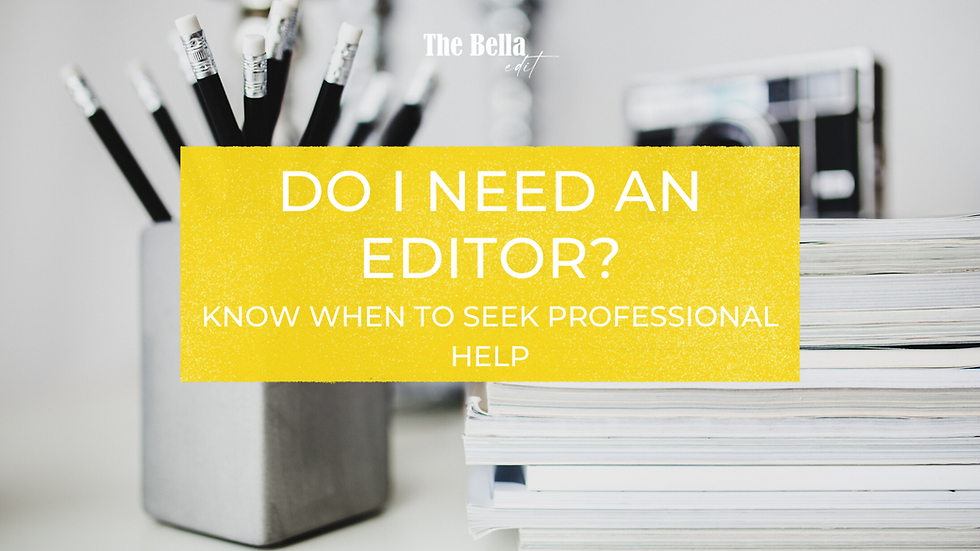10 Reasons To Write A Book
- Bella

- Sep 21, 2022
- 3 min read
Updated: May 15, 2025
Have you ever heard the phrase, “everyone has a book in them”?
This is, in large part, true. Everyone is capable of writing a book and, in fact, many people dream of being able to say that they are a published author. Now, this doesn’t necessarily mean that everyone has a story that others need to read. But that isn’t the only reason to write a book.
When we think of writers, we tend to think of bestselling authors. But that’s just one kind of writer; many don’t actually aspire to become bestsellers, they have a different purpose.
Find out more about these different writers’ motivations in the list below.
1. The Writer
Simply put, you are a writer. You can’t imagine not writing; it would feel a little bit like giving up food or water. Even if you tried to stop yourself, you’d soon be itching for a pen. You’re constantly jotting stories and snippets down: in notebooks, on your phone, on bits of napkin or on envelopes you find lying around the house. Maybe you haven’t ever written the words ‘The End’, but it’s on your bucket list.
2. The Dreamer
You have an idea for a story that you just can’t get out of your head. A bit like a song, the only way to stop thinking about it is to finish writing it. Maybe you’ve thought of a story you’d love to read but you can’t find a book like it on the market. Sometimes, the best way is to do it yourself.
3. The Money-maker Nowadays, most people are aware that it can be difficult to make a decent living from writing alone. That’s not to say it’s impossible, however, and maybe you’re determined enough to give it a go. There are lots of benefits to earning a secondary, or even primary, source of income from your writing. It’s easy enough to get started: with the rise of self-publishing, you can become a professional author with nothing more than a laptop and an internet connection (in theory; in reality, it requires far more).
4. The Therapist Ever heard of bibliotherapy? It’s a form of therapy based on reading and what we can learn from stories. Books have a way of connecting people and helping them to understand their struggles better. Writing can be similarly therapeutic. To be able to express yourself and channel your feelings and thoughts into a book can be liberating and fulfilling.
5. The Expert You’re known as an expert in your area and you’d like to share your knowledge with the world. Maybe your subject has become relevant or newsworthy, or maybe it’s a niche area that hasn’t been explored in publishing before, or perhaps you have new learnings to bring to the table. Either way, there’s an audience of people interested in your topic that would be keen to learn more about your thoughts on the matter.
6. The Speaker Perhaps you frequently speak at events or are invited to lecture at schools and other institutions. Having a book to hand out and even sell afterwards is a fantastic way of adding to the experience for attendees and ensuring they leave with an in-depth understanding of your teachings.
7. The Achiever For many, writing a book may have been a childhood dream or an adult ambition. Reaching the finish line is a huge achievement. And writing a book is a journey – you learn a lot about yourself and about the craft of storytelling in the process, and completing even a first draft can be a huge undertaking. It’s something you can proudly tell others you’ve accomplished.
8. The Hobbyist You don’t have to be a good writer in order to write. Some people want to do it for fun. Writing is a great hobby like many others. The process of writing can be incredibly therapeutic and enjoyable. It’s an activity that you don’t need much to get started with, and it can be a great way of taking some time for yourself away from the world’s distractions.
9. The Historian You’re passionate about a particular part of history that you’re determined to record. It might be a world event that you lived through or learned about and want to record. Perhaps it’s your personal history you want to look back on or the story of a loved one you’re writing as a gift.
10. The Legacy Some people are terrified by the idea that, one day, we’ll die and there will be no trace of us left in the world. While this existential thought is quite depressing, some people use it as motivation to leave their mark on the world. And what better way to do that than to write a novel?
.png)




